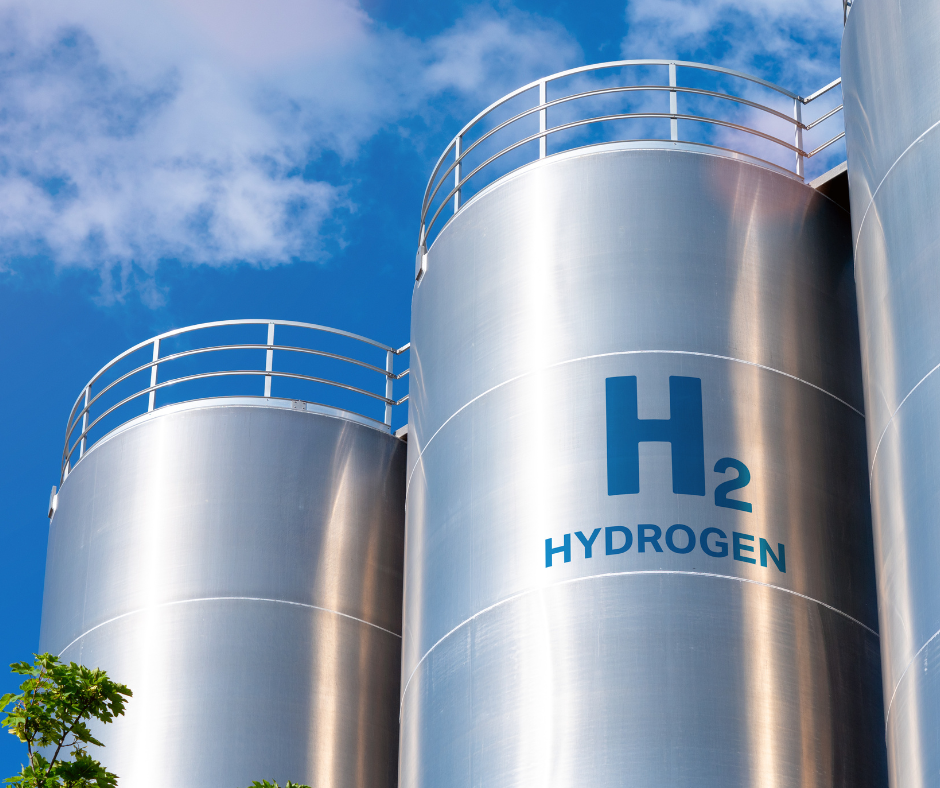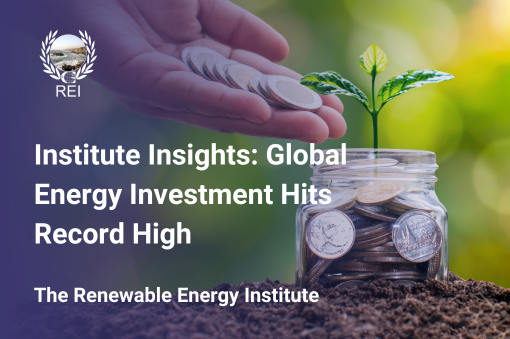Renewable Energy Insights
The Role of Hydrogen in the Future Energy Landscape
As the world accelerates the shift towards low carbon and sustainable energy solutions, hydrogen has gained significant attention as a versatile and efficient energy carrier. With the capacity to store, transport and deliver energy efficiently across a range of applications, from power generation and transport to industrial processes, hydrogen presents unique opportunities to enhance energy system flexibility and resilience.
In addition to its potential for deep decarbonisation, hydrogen contributes to improved energy efficiency by enabling cleaner fuel alternatives and supporting the integration of renewable energy sources. Its ability to be produced from various resources, including water via electrolysis powered by renewable electricity, further strengthens its appeal as a cornerstone of future energy strategies.
This article provides an overview of what hydrogen energy is and explores its anticipated role in shaping a more efficient, sustainable and resilient global energy landscape.
What is Hydrogen Energy?
Hydrogen energy refers to the use of hydrogen as a clean and versatile energy carrier which is capable of storing, moving and delivering energy produced from diverse sources such as water, fossil fuels or biomass to power vehicles, generate electricity and heat buildings. As the lightest and most abundant element in the universe, hydrogen doesn’t exist at scale in its pure form on Earth; it must be separated from other substances, a process that consumes energy [1].

There are 2 principal production pathways. The dominant method today is steam methane reforming of natural gas and emits CO₂ as a by-product. Alternatively, hydrogen produced via electrolysis, whereby electricity splits water into hydrogen and oxygen, is emission‑free when powered by renewables (green hydrogen) and offers an important route to decarbonisation. Emerging technologies such as solar‑driven photo electrolysis, biomass gasification and thermochemical processes promise further efficiency gains in the future [2].
Once produced, hydrogen can either be combusted, releasing only water vapour, or used in electrochemical fuel cells to generate electricity with minimal emissions. Its high gravimetric energy density (roughly 3 times that of gasoline by weight) makes it particularly attractive as a fuel for sectors where electrification is challenging, such as heavy industry, long‑haul transport, shipping and aviation. However, its volumetric density is low, necessitating compression or liquefaction, and present-day storage and transportation technologies remain complex and costly [3].
Hydrogen Energy Advantages & Disadvantages
Hydrogen presents several compelling benefits that support its growing role in decarbonised energy systems. Firstly, when used in fuel cells or combusted, hydrogen emits only water vapour, making it inherently clean and offering a viable pathway to reduced greenhouse gas emissions, particularly when green. Its high gravimetric energy density enables lightweight energy storage and is advantageous in heavy transport, industrial processes and grid stabilisation. Hydrogen also supports broader energy system flexibility by enabling seasonal and long-duration storage, converting surplus renewable generation into storable fuel [4].
Despite its strengths, hydrogen faces significant limitations. Current production remains energy-intensive and expensive, especially for green hydrogen, which relies on costly electrolysers and dedicated renewable capacity. Only a small fraction of hydrogen today is produced via electrolysis, most relies on fossil fuels, resulting in CO₂ emissions unless paired with carbon capture technology. Storage and transport infrastructure, such as high-pressure tanks, cryogenic equipment or pipelines, pose technical challenges, add cost and require strict safety protocols due to hydrogen’s flammability and material embrittlement concerns . Finally, lifecycle round-trip efficiency is relatively low (often up to 50%), compared to battery storage (70-90%) [5], impacting overall energy economy.
The Future of Hydrogen Energy
Hydrogen energy is increasingly recognised as a vital complement to renewable energy sources, playing a crucial role in enabling a fully decarbonised and resilient energy system [6]. One of the primary challenges with renewables such as solar and wind is their inherent intermittency and variability, which can lead to supply-demand mismatches and grid stability issues. Hydrogen addresses these challenges by serving as an efficient medium for long-duration energy storage and seasonal load balancing, allowing excess renewable electricity to be converted into hydrogen through electrolysis for later use.

This capability not only maximises the utilisation of renewable energy assets but also mitigates curtailment, when renewable generation is wasted due to grid limitations or low demand. By storing surplus electricity as hydrogen, energy can be reintroduced into power systems, transported or used in sectors difficult to electrify directly, such as heavy industry, aviation and shipping. Moreover, hydrogen can facilitate the integration of renewables into existing gas infrastructure through blending or by serving as a clean alternative fuel in natural gas power plants, enhancing the flexibility and decarbonisation potential of current assets.
Several countries and institutions are investing heavily in hydrogen innovation and infrastructure development, reflecting its strategic importance in future energy scenarios. As electrolyser costs decline and renewable capacity expands, hydrogen is expected to become a cornerstone of the global energy transition, bridging the gap between intermittent renewable generation and reliable, low carbon energy supply [7].
The Renewable Energy Institute’s Hydrogen Energy Consultant Expert Certificate provides an in-depth understanding of hydrogen technologies, market trends and project development, empowering professionals to elevate their expertise in the expanding hydrogen energy sector. Get in touch today to find out more.

Read Next: Global Energy Investment Hits Record High
Sources:
[1] https://www.mckinsey.com/featured-insights/mckinsey-explainers/what-is-hydrogen-energy
[2] https://arxiv.org/abs/2410.08154
[3] https://extension.psu.edu/what-is-hydrogen-energy
[4] https://www.twi-global.com/technical-knowledge/faqs/what-are-the-pros-and-cons-of-hydrogen-fuel-cells
[5] https://www.switzermfg.com/blog/hydrogen-production-advantages-disadvantages-of-different-methods/
[6] https://www.iea.org/reports/the-future-of-hydrogen
[7] https://www.irena.org/-/media/Files/IRENA/Agency/Publication/2019/Sep/IRENA_Hydrogen_2019.pdf
